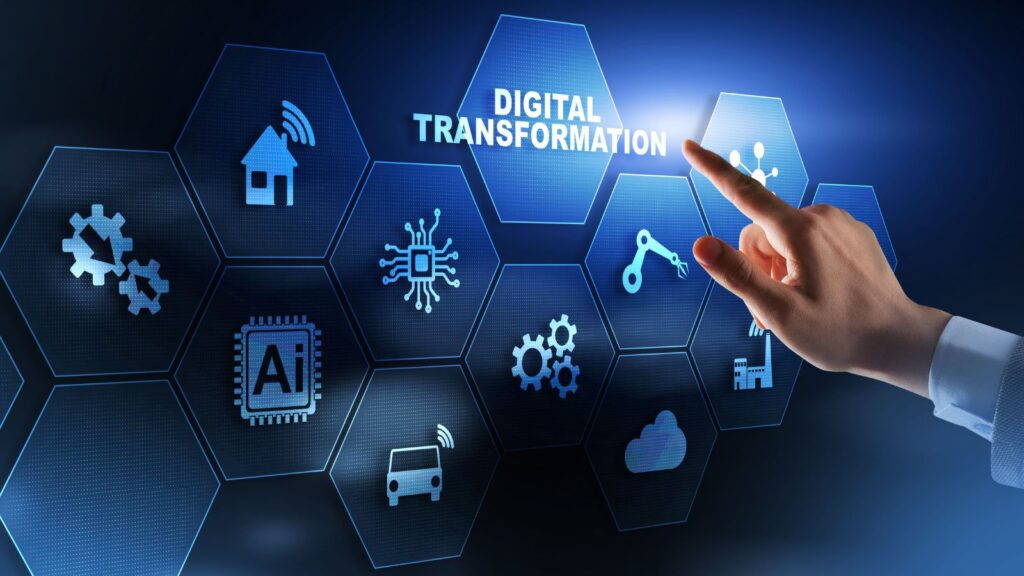
Company News
Written on 11.05.23
As hybrid working has become ubiquitous worldwide, businesses have had to embrace new technologies to accommodate this modern workplace.
However, technology can have an adverse effect on people’s mental health, from continuous scrolling on their phones, to endlessly staring at a computer screen for work and play. It seems in today’s hybrid working landscape, this has become the state of play for many, which can lead to digital fatigue and burn out as the lines between work and life easily become blurred.
‘According to McKinsey & Company (2019), 75 in 100 employees required mental wellness support.’
Mental health conditions can have a significant impact on workplace absenteeism, presenteeism, and productivity loss. According to the World Health Organization, depression, anxiety disorders, and other conditions can result in a global economic cost of $1 trillion per year due to productivity loss. However, mental health is not a binary concept, but rather a continuum that ranges from wellness to acute illness, including substance-use disorders. Even individuals who do not have a recognized mental health condition may experience challenges due to stress, external circumstances, or other reasons.
Utilising technology in the right way can have a positive impact on your employees’ mental wellbeing. It can help your teams manage their time and workload more effectively and efficiently, without the overwhelm of competing and priority tasks, as well as looming deadlines. Let’s not forget those hapless, redundant jobs that also crop up, such as manual data entry, that can otherwise divert and distract away from innovative and more creative tasks.
Creating a comfortable, flexible and efficient workspace is just as important at home as it is at the office, so it’s imperative that your teams are equipped with the right tech and support that they need and this can be achieved through digital transformation.

The right software solutions make your employees jobs and lives a lot easier, allowing them to easily perform their job roles from any location. However, there is the argument against hybrid working, causing people to feel lonely, withdrawn and isolated. There is some validity to this, however it is pertinent to take into consideration the flexibility that this technology can offer. Digital tools, such as instant messaging and project management software, can facilitate communication and collaboration between team members, even if they are located in different parts of the world. This can help reduce feelings of isolation and improve teamwork, which can positively impact employees’ mental health.
Also, the concept of work from anywhere, anytime doesn’t mean that the office environment is completely off-limits, should employees want to come into the office. It just gives more of a choice for different working styles, that accommodates that all important work-life balance.
These digital technologies also allow employees remote access to mental health resources, such as counselling, support groups, and mindfulness programs more than ever before, which can be particularly beneficial for employees who may not have easy access to these resources in their local area.
With the rise of remote work and the challenges of modern life, choosing the right software for mental health are becoming essential for managing stress, improving productivity, and promoting overall wellbeing. Here a few innovative products that offer digital solutions for greater flexibility, collaboration, and access to resources.

This method streamlines invoice payment processes, thus reducing manual workload. This in turn can reduce stress, and help create a more positive and productive work environment for employees.
Processes, such as receiving, reviewing, and processing supplier invoices are streamlined and accelerated with the assurance of increased accuracy, as manual data entry errors are eliminated.
Docuware’s Automated Invoice Processing also improves compliance, by automatically enforcing business rules and workflows, to ensure compliance and regulatory policies are met. This can take the stress out of compliance-related anxiety that is caused for employees who may be responsible for ensuring compliance with policies and regulations.
With faster payment processing and safe in the knowledge of minimal errors, employees are able to focus on more meaningful work, enhancing job satisfaction, which contributes to their health and well-being overall.
Security experts, Verkada, offer smart building management systems to create a more comfortable and productive office environment. By providing facilities managers with the right tools, they can optimise space, improve security, and ensure that employees have access to the resources they need to be successful.
Vekada’s smart thermostats help regulate the temperature and humidity levels in the office, ensuring that employees are comfortable and productive. These thermostats can be controlled remotely via Verkada’s cloud-based platform, making it easy for facilities managers to adjust settings as needed.
The Environmental Monitoring of Verkada’s systems can also detect issues like air quality problems, water leaks, or other potential hazards before they become serious problems. This can help ensure that the office is a safe and healthy environment for employees to work in.
With Verkada’s occupancy analytics, building managers can ascertain how many people are in the office at any given time, and how they are using different areas of the space. This can help optimise the layout of the office and ensure that employees have access to the resources they need to be productive.
Ricoh offers an office management tool for hot desking that optimises desk utilisation, improving space allocation, and enhancing security and compliance, to create a more efficient and secure workplace. Their hot desking is a software solution that enables employees to hot desk, and choose any available desk, when they want to come into the office. This feature allows employees to reserve a desk in advance, ensuring that they have a space to work. Desk booking can be done through an app, a web portal, or a touchscreen kiosk.
Organisations can monitor desk usage in real-time, allowing them to optimise space utilisation and reduce costs, by making data-driven decisions about their office space. Reporting and analytics can also help organisations identify trends and optimise their office layout and furniture. Another advantage of this software is that its security and compliance feature ensures sensitive information is protected and that organisations comply with data protection regulations, as well as ensuring user authentication, data encryption, and access control.
For the first time in a long time, people are able to achieve a healthy work-life balance, as automation significantly reduces time spent on repetitive, mundane tasks. In fact, with the help of software solutions, people are now completing their work tasks in half the time, without hampering on quality or productivity. It’s beneficial for businesses to embrace this new culture, as it is proving to increase productivity. Staff are a lot happier, being able to easily produce good work and have a bit of extra time to spare for themselves – allowing them to spend a bit more quality time with loved ones, learning something new or doing something they enjoy.
With the advancement of certain technologies in workflow automation and building management etc, businesses are also better equipped at using the right software for mental health and to aid employees in their roles, by alleviating any pressure from a whirl of multiple tasks, workloads and deadlines.
By today’s standards, it seems unusual for a company not to offer flexible working options and the technologies to accommodate it. The more employers make it easier for employees to do their jobs at a pace that suits their job and lifestyle, the better the productivity level, which is needed for a business to thrive in today’s landscape.
For more information on how digital transformation solutions can benefit your organisation and staff, e-mail generalenquiries@aurora.co.uk or call us on 020 7503 3000